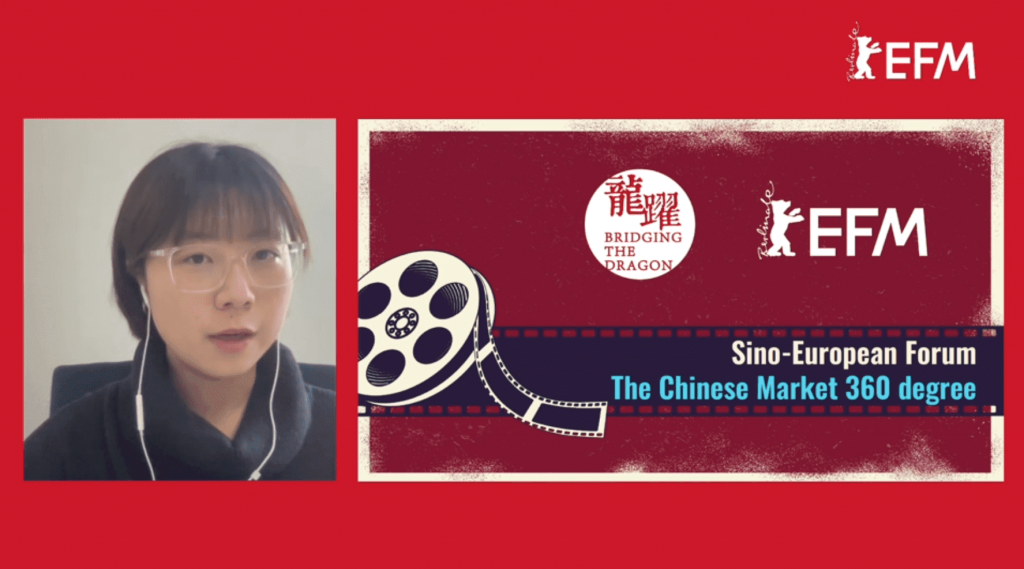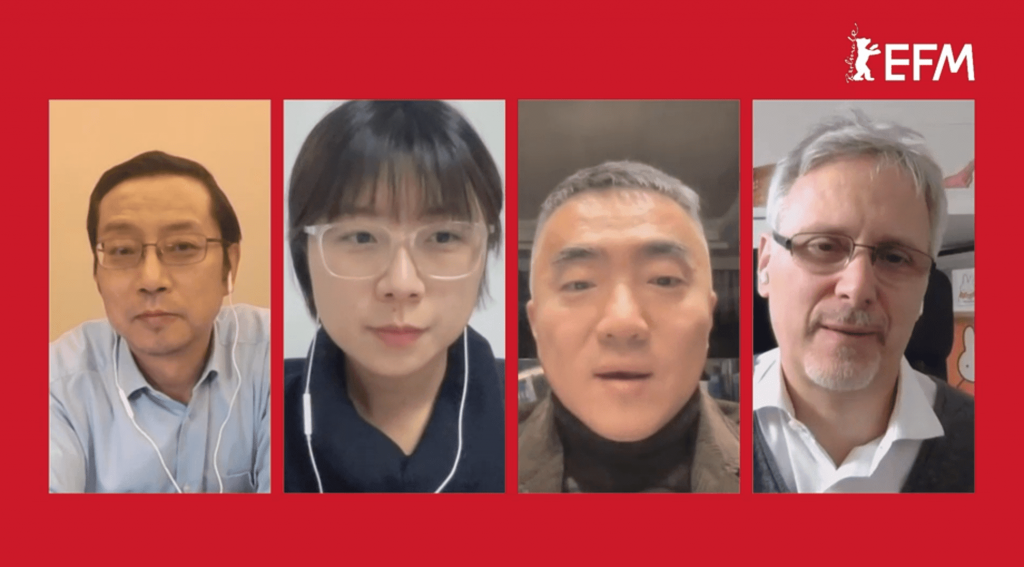 On 15 Feburary 2022, the traditional event of the EFM focusing on Chinese market explored the status and future perspectives of the interaction with this enormous and always expanding reality.
On 15 Feburary 2022, the traditional event of the EFM focusing on Chinese market explored the status and future perspectives of the interaction with this enormous and always expanding reality.
Over the past two years, the Chinese film industry has recovered at a faster pace than the rest of the world. Although it still did not reach the pre-pandemic height, it surpassed the U.S. and became the world’s largest market. The event tried to explore the current situation and offer to the international participants some perspectives of what may lay ahead.
Zhang Fan, the China manager of Bridging the dragon, described how recent events (COVID, travel limitations, geopolitical tensions, lack of big American blockbusters) increasingly disconnected China from the rest of the world. Domestic films accounted in the last season for as much as 85% of local box office. At the same time there has been a sharp fall in the share of imported films. Only 67 foreign titles were released in 2021, accounting for only 15% of the total box office.
The numbers of international co-productions have been also at their lowest since many years, as described by Liu Chun, General Manager of China Film Coproduction Corporation (CFCC). Neverthless, he foresaw that the international collaboration with China will florish again after the pandemic is resolved and the world reopens again. The new Five-Year-Plan drafted by the Chinese central authority calls explicitly for an enhance of the international exchange of artistic and technical expertise, the promotion of Chinese quality films on the main international markets also throurgh the establishment of Chinese booths at major film festivals and the encouragement of co-productions.
Wang Donghui, renowned Chinese producer, who in his career has been successful in many genres, pointed out that the current climate actually pushed for an improvement of the quality of local productions, both from the technical and narrative point of view. It also brought some new opportunitities for Sino-European collaboration. One of them is the exploitation of remakes. Because in Mainland there is a general shortage of contents, remakes seem to provide a quicker step into production. Many of the current remakes came from other Asian countries, as their aesthetics are already closer to the Chinese taste. It’s the case of comedies like Too Cool To Kill, remake of the 2008 Japanese hit The Magic Hour, which became the second highest-grossing film ($217 million) of the last Spring Festival season. But there has been a growing attention also towards European titles that manage to express universal emotions and family values common to us all.
Another increasing possibility for international collaboration is animation. Three of the seven films released during this year’s Spring Festival were animated. Because of the special nature of animation, where the workload of the production can be done also online, the collaboration with foreign partners is easier. Wang Dongwei mentioned how surprised he was to be approached more and more with projects based on virtual characters. A CGI generated may have features which are not clearly Asian or Western and may be easily dubbed into any language.
In conclusion all speakers confirmed that the moment still holds some uncertainty, but down the line, with an easing up of policies and the restart of physical exchanges, there will still be important opportunities for collaboration between the European and the Chinese film market.






